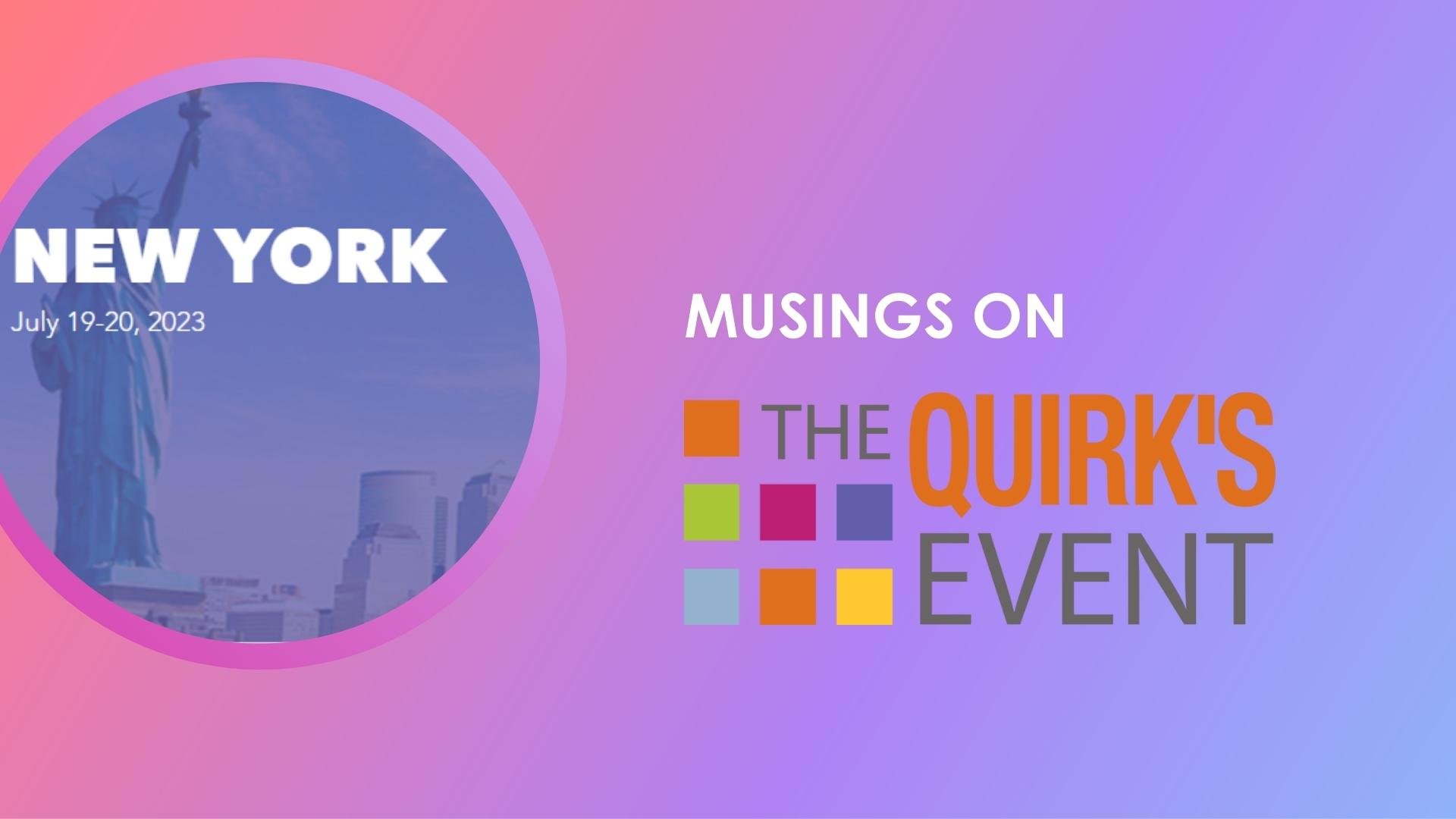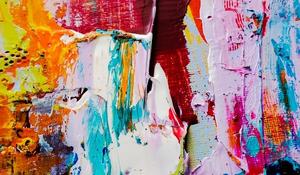Empathy is killing my friend. The emotional wound of socialized struggle
As a fragile ceasefire in Palestine sparks hope, I’m reflecting on a secondary struggle that’s stewed in parallel for the last two years. On or around October 7th, I lost my best friend. She became locked inside a chamber of static, where every word was a wound. She is a Palestinian living in the US, but her soul has been 6000 miles away. Every shell, scream, or bullet reverberates around her body and deafens her to any semblance of the life she led before. Her friends, colleagues, and neighbors are ghosts and their chosen subjects are insults in the face of such monumental tragedy.
But she’s my best friend, so I’ve desperately and awkwardly struggled to connect. I started by devouring the news, debates and history of the conflict. I traveled 2000 years via essays, books and YouTube explainers in the vain hope that information might grant me some philosophical resolution or at least a better connection. I’m embarrassed that I believed that thought and debate could offer psychological relief. I have failed to bring back or meaningfully support my friend. Speaking is sporadic, and when we do, I feel like a hollow vessel that is being looked, and spoken through. I can feel her health slipping as she’s consumed by the barrage of media-amplified suffering and I’ve been impotent to counteract any of it.
I’ve challenged some of my beliefs during this period, but I’m taking particular aim at a concept I‘ve eulogized and studied for a decade: Empathy. So enamored have I been by this quality that I’ve boasted that I am in ‘the empathy business.’ I have intensified my novel reading, as prescribed by my empathic heroes, and I have smugly declared that the woes of the world are directly correlated with the shocking, yet measurable declines in empathy. I’ve brandished the chart below on numerous occasions:
But I’ve been wrong about the universal curative power of empathy, for the magical powers it bestows in peacetime can be debilitating in times of catastrophic suffering. For my friend, empathy was her superpower and one that was honed by growing up around discord, narcissism and competing agendas in the Middle East. I would refer to her as a ‘spiritual translator.’ Not only does she speak 5 languages, but she has an otherworldly ability to truly feel what disparate groups are feeling. She senses subtext and knows when people are actually in violent agreement long before they do. She has all the tools of the best listener. She probes deeply, she deftly uses context and has an uncanny gift for enabling vulnerability from her subjects, without judgement while permitting vagueness and even chaos. This power served her (and me) well in our comfortable social and corporate lives, where reading a room and calming emotions gave us an edge, but they were never a matter of life and death. When murder, mutilation and famine are the quotidian we might need access to a dimmer switch. This is not a call for muting or disabling empathy and empaths, instead, we must learn how to master and channel them.
But, the super empath is famous for putting her own needs last. I’ve witnessed the side effects of an overcommitment to others in the past, but these would always pass eventually. Caring was only a hobby, not a day job, so some checks and balances were omitted. Professional caregivers are trained to insert distance between themselves and their subjects in order to dispatch their duties productively. Empaths and hobbyists, on the other hand, must endure vicarious trauma and are therefore fast-tracked to burnout.
Empathy is still a relatively recent word, barely a century old. It was born from the German word ‘Einfühlung’, which means to ‘feel into’ something aesthetically, like art or music. Its use in the moral and psychological realms has been short, so we’ve had little time to study it in depth. By now, we understand its evolutionary role in aiding social connection by emulating good behavior, language or emotion. But we know very little about its usefulness - neither in a society that wears its collective woes on its digital sleeve, nor how its overactivity might damage its host, rather like an autoimmune disease.
Lately, empathy has taken a severe beating from the political right. Beginning with Christian conservatives and books such as ‘The Sin of Empathy’ by Joe Rigney or ‘Toxic Empathy’ by Allie Beth Stuckey, it was then amplified by Elon Musk, JD Vance and even Charlie Kirk, who have all cast empathy as a threat to Western democracy. The term ‘toxic empathy’ has been stolen from psychology by the politicians and wholly bastardized in the process. The new meaning is an angry backlash to accusations from the left that the right has no compassion. The debate almost always centers around immigration or foreign aid. So bruised is the right by the stone throwing that brands them as uncompassionate that they’ve not stopped at disarming the word. Instead, they’ve rearmed it before spitefully slinging it back at the left..
Studies have tried in vain to draw differences between the empathic tendencies of left vs right-leaning subjects and have remained inconclusive. In fact, the only asymmetry noted is the lack of empathy liberals feel towards conservatives. Apart from a small group that includes sociopaths, very few of us are entirely lacking in empathy. It’s a false dichotomy to pit the so-called compassionate (yet weak) against the hard-nosed (rational). Aristotle talked about the balance of empathy and rationality. He didn’t demonize or ban it, but simply counseled us to channel it towards the good. So let’s turn our focus away from the political distractions.
I do want to rescue the original meaning of ‘toxic empathy’ from this puerile scrap that’s warped it however. Because it’s precisely what I’m talking about. While empathy, like immunity, is essential for society’s survival, under the wrong conditions, it can be harmful to the host. And today’s conditions have put a new strain on humans. Perhaps this is why my beloved empathy chart has moved dramatically in the other direction. It's no longer in decline. In fact, as a society, we have reversed our empathy deficits since 2011.
Today’s concern really isn’t whether we want more empaths, it is how we manage and metabolize empathy in the face of an oversupply of pain content that the media force feeds us - thereby pouring cocaine into our empathy reserves. When anyone can scroll on social media between a home botox solution one moment and witness an amputated baby the next, we are no longer the active consumers in this dynamic - we are being consumed by it.
Carl Jung spoke in depth about this consumption by empaths. He didn't call it toxic empathy, but he clearly spoke to both characterizations of the term. He warned against a cultural miscasting of empathy as weakness and he saw how others’ emotions flowing through the empath will eventually lead to resentment and inner despair. The knee-jerk response to therefore curtail, thwart or even encourage more empathy or empaths should be resisted in favor or properly directing those we have. Because the role of an empath is not to be a giant sponge that absorbs and heals the pains of the world. It is to name and expose the untreated wounds of society so that we all might decouple from repetitive cycles of self and societal harm.
As Carl Jung said, “The empath’s suffering is not a flaw, it is a map. And they are born to serve as a mirror to humanity’s collective shadow.” By this definition, my earlier description of my friend as a ‘spiritual translator’ was more accurate than I realized, except that her role is to translate what the soul is attempting to tell us. But Jung also said: “Empathy without boundaries is martyrdom.” And I’ve seen what happens when my friend doesn’t recharge in between periods of pain absorption. The empath - especially the introverted kind, needs periods alone so that they might replenish reserves. Their superpower only works well when social interaction is moderated.
There are limits to empathy - especially my own. I make assumptions, I over and underestimate people, as well as form hasty stereotypes. Rarely do others' shoes fit us perfectly, so I may be entirely off-base with my diagnosis of my friend, but there are millions of empaths out there whose special skills should be put to good use before they’re turned inwards and harm their hosts. How many of our relationships are being impacted, not by an inability to connect, but by overactive media-poisoned empathy? This zeal may have ironically led to a greater fracturing of bonds as today’s affiliations are less proximity-based or even family-based and more belief-driven. The recent book by Peter Dolan, ‘Beliefism’, points out how digitally-mediated tribes huddle around beliefs and demonize those who don’t agree with them wholeheartedly.
Whether the fragile peace negotiations survive the week or not, our even more fragile constitutions must be managed more thoughtfully. We must work on our inner worlds to arrive at peace before we can complete the task in the outside world. We've spoken about compassion fatigue and Gen Z’s displaced anxiety for events happening beyond our borders. And we probably agree by now that the media's unchecked power to amplify this anxiety has removed the necessary friction required to keep society from mounting a civil war. But if society’s listeners, its moral and psychic mirrors are consumed by their own inner wars, humanity in a rather precarious position.
Our task, therefore, is closer to home. It’s to regain agency of our own souls and those of our friends, family and empathic colleagues. It is inevitable that some of us will have immense empathy for those we see struggling, due to the immediacy of the media. But if we miss attending to our own inner worlds and to those of our neighbors, we are unlikely to do any good for those thousands of miles away. The scourge of ‘beliefism’ has stopped us from even beginning to empathize with the vast array of people that will help start that - including ourselves. So slow it down, take some time for reflection. Friction and even resentment are necessary wayfinders in this that the empath must deploy too. Because without healthy empaths, the rest of us are at a huge disadvantage.


.png)
